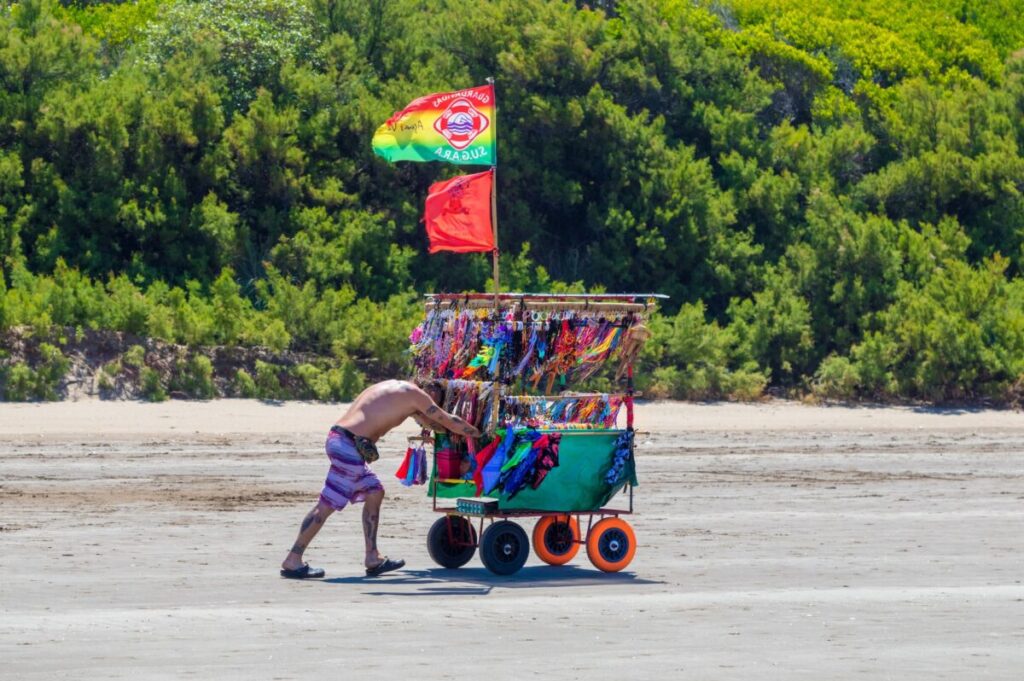The last talk I gave during the Free Market Road Show was, naturally, in the last city we visited this year. Namely, Chisinau, the capital of Moldova. My speech here was quite different from others I gave throughout the Road Show. The focus was on taxes, but more specifically on how taxes and economic freedom interplay.
Roughly speaking, we can say that there two kinds of low tax countries. Real and legitimate low tax countries, such as Singapore, Ireland or Switzerland. And then there’s another kind of low tax countries. These are the ones which have extremely complicated tax codes, very high nominal tax rates, and even higher levels of tax evasion. Moldova is an extreme case of the latter. Sri Lanka, too (I found out about this thanks to our wonderful FMRS speaker Razeen Sally). My native Argentina is nowadays a mild example of this illegitimate low tax countries.
To become a low tax destination is, at least in part, a decision. A rational choice, taken following logic and reason. Ireland, indeed, is probably one of the best examples. On the contrary, in countries like Moldova and Argentina, the main motivation of the de facto low tax status is mere survival. Of course, there’s nothing wrong with individuals trying to survive. But late capitalism has moved way beyond survival-mode (thank God!).
We can all agree that the inhabitants of Singapore or Estonia enjoy a great deal of economic freedom thanks to the liberal and business friendly tax systems of their respective countries. Paradoxically, the inhabitants of Moldova, Argentina, and Sri Lanka also enjoy a great level of economic freedom thanks to the illiberal and socialist tax systems of their crazy countries. But, and this is a big but, this sort of economic freedom is totally unproductive.
Before I go on, I want to be absolutely clear, tax avoidance is a legal right in most countries. This means, it is perfectly legal for individuals to try to make use of whatever legal means to minimize their taxes. What’s more, tax evasion is a basic human right. Many people think that tax dodgers are filthy rich people who wear top hats and golden jewelry. This is totally wrong. Most of those who evade taxes do so as a last resort, when taxes are so confiscatory that there’s no other way.
Nonetheless, market economy seems to thrive in environments where people pay their taxes… precisely because they can afford to pay their taxes. Governments and states are a reality. As long as they exist, taxes will be something we have to deal with. Therefore, it’s key that they’re low and simple. The alternative is regime uncertainty and illegality. This scenario has been proven again and again incompatible with sustainable economic growth.
Ludwig von Mises himself saw this problem: “thanks to [loopholes] this country is still a free country is certainly true. But this loopholes capitalism is not a lasting system. It is a respite. Powerful forces are at work to close these loopholes. From day to day the field in which private enterprise is free to operate is narrowed down” (see “Two essays,” page 66, emphasis mine).
In Argentina, for example, the populist government started taxing agricultural exports in 2002. In the case of soybeans, these taxes started in 20% and rapidly rose up to 35%. Thus, for every dollar our exploited farmers received, 35 cents were taken immediately by the government. And after that came all the other taxes. It is not surprising that, according to the World Economic Forum, the total tax rate of Argentina was an outrageous 137% in 2015. The consequence? Smuggling skyrocketed. Some of Argentina’s neighboring countries registered a boom of soybean “production” after the ridiculous export taxes were put into practice. I applaud the people who did what they had to do in order not to pay such confiscatory rates. But…
You don’t have to be Adam Smith to realize that this is a killer for the business climate. With the extraordinary international commodity prices we’ve had since 2002, Argentina should have become one of the most important agribusiness centers of the world. Nothing like that happened, of course. In fact, the agricultural sector of the country was severely hit by this insane tax policy and no significant investments were made. You can’t seriously deal with investors and at the same time explain them that they’ll have to smuggle their production to a neighboring country in order to make a profit.
So, what to do now?
In the Argentinean case, these ludicrous export taxes are being eliminated.
Moldova, on the other hand, has yet to start its reform. Countries like Estonia and Ireland can definitely serve as role model for the Moldovan Republic. Both are members of the European Union. Why not follow their footsteps? For Moldova the EU can really help in the fight against corruption, the strengthening of the rule of law, and in the improvement of political institutions. The Irish and Estonian examples, in turn, could help Moldova not to adopt the excessive regulation and taxation the EU can also bring.
For a country like Moldova, becoming a new Ireland or a new Estonia would represent a quantum leap. And this great destination can only be offered if they cooperate with the European Union. Will they be up to the challenge?
* Federico N. Fernández is Executive Director at Somos Innovación (a Latin American pro-innovation alliance) and CEO at We Are Innovation (Somos Innovación’s sister organization for Europe). Federico is Founder and President of Fundación Internacional Bases (Rosario, Argentina) and also the Chairman of the Organizing Committee of the International Conference “The Austrian School of Economics in the 21st Century,” which takes place in Europe and LatAm alternatively.
Source: Fundación Internacional Bases




